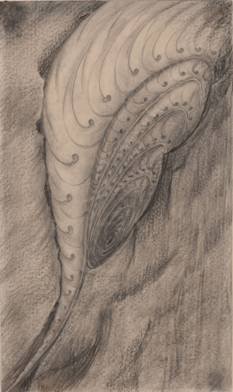Hermann Obrist
dal 14/7/2009 al 26/9/2009
Segnalato da
14/7/2009
Hermann Obrist
Pinakothek der Moderne, Munich
Sculpture | Space | Abstraction around 1900. In Munich in the 1890s, the Swiss-born sculptor established the German variation of the Art Nouveau movement - Jugendstil - which merged the intricate craftsmanship of the applied arts with the aesthetic demands of the liberal fine arts. With his fountains and tombs Obrist created the first abstract sculptures that developed a language of their own through the interaction of organic and inorganic structures.

Curators: Eva Afuhs, Zurich | Andreas Strobl, Munich | Viola Weigel
(concept), Zurich/Wilhelmshaven
The degree of fame enjoyed by the works of Hermann Obrist (1862–1927) has
little relation to their art-historical importance. In Munich in the 1890s,
the Swiss-born sculptor established the German variation of the Art Nouveau
movement – Jugendstil – which merged the intricate craftsmanship of the
applied arts with the aesthetic demands of the liberal fine arts.
However, more importantly, with his fountains and tombs Obrist created the
first abstract sculptures that developed a language of their own through the
interaction of organic and inorganic structures – something that cannot be
simply included under the heading Jugendstil.
Apart from reconstructing an œuvre that has become largely unknown, the
exhibition illustrates the considerable artistic and scientific importance
that Obrist’s idea of combining imagery and contemporary scholarship still
has to this day. This interrelation with the world of science can also be
found in contemporary art. In his treatment of photography, Obrist went
beyond the traditional understanding of sculpture and paradigmatically
opened up new paths for the art of the 20th century. For the very first
time, this exhibition will bring together pieces bequeathed to the
Staatliche Graphische Sammlung München (State Print Collection) and works in
the collection of applied art at the Museum für Gestaltung Zürich (Design
Museum in Zurich) housed in the Museum Bellerive, providing a comprehensive
picture of the œuvre created by the draughtsman, sculptor and theoretician.
Major contemporary figures and friends, including August Endell, Henry van
de Velde and Rudolf Steiner, enable us to see Obrist’s art within a wider
context.
Obrist’s last public appearance was at the ›Exhibition for Unknown
Architects‹ staged by the ›Arbeitsrat für Kunst‹ in Berlin in 1919, where he
was considered a father figure by the younger generation of Expressionist
architects and sculptors. The exhibition is rounded off by taking a look at
the work of Rudolf Belling, Hermann Finsterlin, Wenzel Hablik, Hans Poelzig
and Bruno Taut in conjunction with Obrist’s abstract sculptures. The
biomorphic structures in Hermann Obrist’s barely known sculptural œuvre at
the Pinakothek der Moderne demonstrate their contemporary qualities in the
sculpture and architecture of the modern day.
The exhibition is being held in conjunction with the Museum Bellerive, which
forms part of the Design Museum in Zurich, where it was first shown. Works
from the artist's estate in Zurich and Munich are to be included for the
first time in the accompanying German/English publication, 248 pages, 180
illustrations, Scheidegger & Spiess, Zurich, € 40 at the exhibition (trade
edition: € 49).
The various facets of Obrist’s work will be presented at a public symposium
in the Pinakothek der Moderne on 18th and 19th September and will provide a
platform for discussing Obrist’s position within the history of abstract
sculpture. Speakers: Hubertus Adam (Zurich), Bernd Apke (Gütersloh), Erich
Franz (Münster), Christa Lichtenstern (Berlin), the ›Hermann Obrist in the
art and media network around 1900‹ research project (Zurich).
Image: Fantastic Conch | pencil and charcoal | Staatliche Graphische Sammlung München. Foto: Martina Gadiot © Staatliche Graphische Sammlung München
Press contact:
Dr. Christine Kramer
Kunstareal Türkenstrasse 19 80333 Munich T +49 (0)89 23805-1320 / - 1321 F +49 (0)89 23805-1304 presse@museum-brandhorst.de
Press Preview: 15.07.2009, h 11.00
Opening: 15.07.2009, h 20
Pinakothek der Moderne
Barer Strasse 40 - Munich
Hours: daily except monday 10-18, thu 10-20



